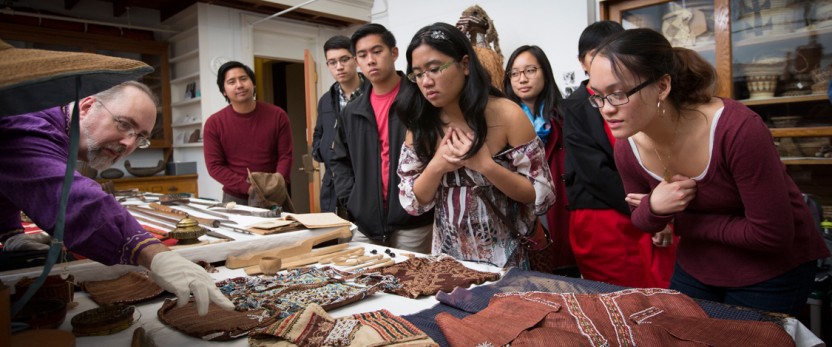Explore Cornell

Explore. Be curious. No matter your major.
When you lean into your curiosity, you're much more likely to ask questions, gain new insights, challenge conventional wisdom, and develop a deeper understanding of yourself and the world around you. Being curious also makes learning more enjoyable and engaging, which is what we aim to foster at Cornell.
Curiosity is also essential for critical thinking, an important skill to hone in college, where you'll be exposed to diverse ideas and perspectives and be encouraged to acknowledge your biases, analyze information objectively, and make judgments with sound reasoning.
Through academic exploration, you may find that your interests evolve or even change altogether - and that's a good thing! You shouldn't have the same academic focus or mindset that you had in high school. Your viewpoint should grow and become better informed, setting you on your unique path toward building an interesting and purpose-filled life at Cornell and beyond.
Tips for academic exploration
Talk with your advisor (either your college student services advisor or faculty advisor or both)! They can help you think through your interests and develop an academic plan.
Find courses that match your interests. Course Crafter and Pathways are two great tools that will help you find courses in areas you wouldn't have otherwise considered.
Meet with a career coach to learn techniques for exploring how courses and skills align with different career paths.
Pursue a Minor: Cornell has over 120 minors to choose among. Minoring is a great way to survey an entirely different academic area from your major and broaden your range of knowledge.
Get involved in research. Become a part of the quest for discovering new knowledge with Cornell faculty, post-doctoral associates, and graduate students. Develop new technical, communication, creative, and critical thinking skills in the lab, the field, the studio, and the library.
Attend academic talks. This is a great way to meet people from across campus, as well as connect with invited speakers who are excited about sharing their work with undergraduates. Joining department list serves or subscribing to the Cornell Events Calendar and Cornell University Campus Groups will keep you in the know.
Take a Special or Independent Studies course: Under the direction of a faculty member, dive into a topic that piques your interest and aligns with a faculty member's expertise.
Become a course Teaching Assistant. Experience the fun of teaching something you love and supporting other students at the same time! Sharpen your communication and leadership skills, gain a solid foundation of the course basics, and become a better student yourself by experiencing what it's like to be part of the teaching team.
Study away. Literally, your world opens up when you hit the road. Students report that studying away, whether that be through Cornell-in-Washington or around the globe, is one of their most transformational undergraduate experiences.
